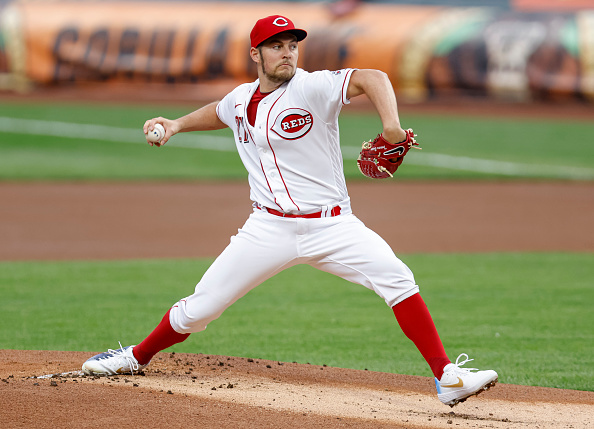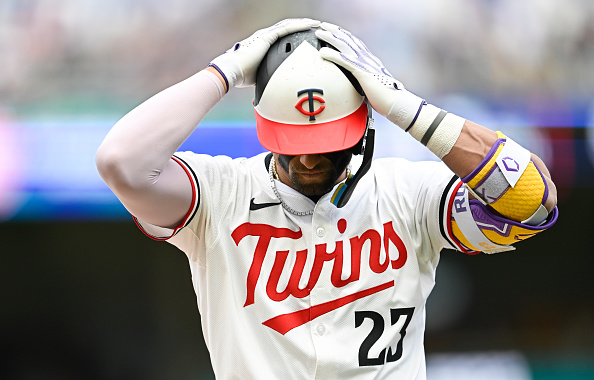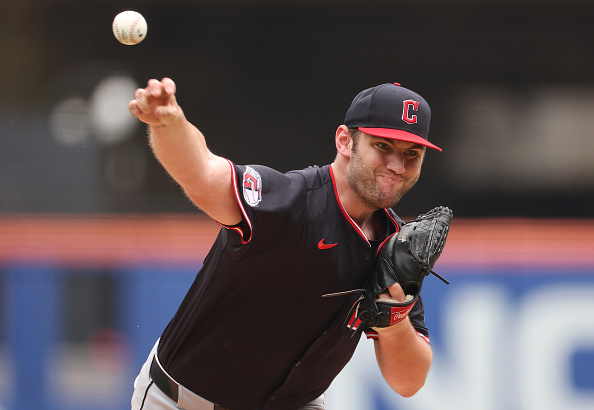Major League Baseball expanded the postseason for the shortened 2020 season. The No. 7 Cincinnati Reds (31-29) made the playoffs for the first time in seven years while the No. 2 Atlanta Braves (35-25) are back for the third consecutive season. The Reds were six games under .500 on Sept. 1st but went 16-9 in the final month to claim a playoff spot and compete in October.
Led by National League Cy Young candidate Trevor Bauer (1.73 ERA, 100 Ks), Cincinnati’s playoff berth represents the fruits of the rebuild that featured two No. 2 overall draft picks, handfuls of roster moves, and a booming recent offseason.
The Braves, on the other hand, are looking to redeem themselves after a miserable exit to last year’s postseason in which they lost Game 5 of the NLDS to the St. Louis Cardinals. Atlanta has played above .500 baseball since July 29 and won its third-straight NL East division title. Outfielder Marcell Ozuna led the NL in home runs (18) and RBI (63) to help give the Braves a run differential of +60, third-best in MLB.
The Wild Card Series between the Reds and Braves will begin Wednesday at noon EST, with all games being played in Atlanta.
Three keys to victory for Cincinnati
Will the offense open things up?
The Reds batted .212 as a team, worst in all of baseball. However, 59.7% of their runs came via home runs, most in all of baseball. It’s boom or bust for Cincinnati. The highest batting average on the team was .255 held by Jesse Winker, but eight hitters collected more than five homers. For the Reds to do damage, they must be able to put the bat on the ball and bring runners around, as Cincinnati only won one game out of 19 in which it scored two or fewer runs.
Will the bullpen close things down?
Cincinnati starting pitchers led baseball in WAR (8.1) and strikeouts per nine innings (11.01). The bullpen was on the hook for seven losses in 2020, which is third-least in MLB, but collectively Reds relievers pitched to a 4.53 ERA, 16th-best in baseball. Raisel Iglesias finished the season with 1.1 WAR, second-most for relievers in the NL. Iglesias also saved eight games and only Amir Garrett had the other lone save on the ballclub.
Reds relievers combined to strikeout 234 batters. Cincinnati has weapons such as Archie Bradley, Garrett, Michael Lorenzen, and Lucas Sims. The only downfall of the sharp bullpen in Cincinnati – those five players combined to have pitched in just three postseason games.
Can the table setters do their job?
Before Sept. 2, Cincinnati had trouble hitting. Notably, outfielder Shogo Akiyama hadn’t adjusted to major-league pitching. He turned it around rather quickly. Akiyama hit .317 in September and led the team in on-base percentage at a .456 clip. Reds leadoff hitters hit .215, second-worst in baseball. Two and three-hitters didn’t do better as they hit .208 and .191, respectively. For Cincinnati to score runs – aside from the long ball – hitters have to get on base.
Three keys to victory for Atlanta
How reliable are the starting pitchers?
The quick answer to this question is no, absolutely not. Braves starters pitched to a 5.51 ERA in 2020, third-worst in baseball. Most of the Braves’ wins were attributed to relief pitchers, which shows the thin depth of the starting rotation. Atlanta will start with it’s ‘ace’ in left-hander Max Fried. Fried also has a legitimate resume for NL Cy Young in that he owns a 7-0 record alongside allowing just 14 runs in 56.0 innings pitched.
Ian Anderson and Kyle Wright are the other two Atlanta starting pitchers who began more than five games. Their records were unspectacular, but Anderson pitched to a 1.95 ERA. All three of the pitchers mentioned above are 26-years-old or younger, and their work in the postseason remains to be seen.
Is Ronald Acuña Jr. healthy?
Atlanta’s 22-year-old star was scratched from the final game of the regular season on Sunday with irritation in his left wrist. While it is Acuña’s non-throwing hand, it is still something to note. Acuña hit 14 home runs and led the team with eight stolen bases. His energy will be key to sparking the Atlanta offense, and the Braves don’t want an energy to douse that.
Can Atlanta mount momentum?
For most of the season, the Braves were comfortable. As mentioned, they have played winning baseball virtually since the season began. They have been expected to get to this point.
How content are they with having met expectations?
In the Braves’ final four games, they failed to score more than four runs. In three of those games, Atlanta allowed seven or more runs. By then the Braves knew they were getting to the playoffs, and now that they’re here, are they ready to contest a team that fought for its playoff spot and has veteran starting pitching?
Analysis
These two teams last met in the playoffs in 1995 when the Braves swept the Reds 4-0 in the NLCS as Atlanta went on its way to winning the World Series. The victor of this series will have won their first playoff series in at least 19 years, with Atlanta’s last coming in 2001 and Cincinnati’s last in 1995.
Today, these two teams show promise in appearing in October baseball for the foreseeable future. These are two different teams coming into this series, with one having expected this appearance (Atlanta) and the other having to step on the gas pedal in recent weeks (Cincinnati).
Prediction: Cincinnati [2 games won], Atlanta [0 games won]
Atlanta has been consistent throughout the season. But Cincinnati has momentum on its side, with most of it having sparked from a six-game winning streak in mid-September and having won five consecutive series.
It’s Cincinnati pitching vs. Atlanta hitting, and both teams are hungry to break playoff draughts.
Check us out on our socials:
Twitter: @PTSTNews and @TalkPrimeTime
Facebook Page: Prime Time Sports Talk
Join our Facebook Group: Prime Time Sports Talk
Instagram: @ptsportstalk
Follow Jacob Benge on Twitter @JacobBenge
Main Image Credit: Embed from Getty Images







